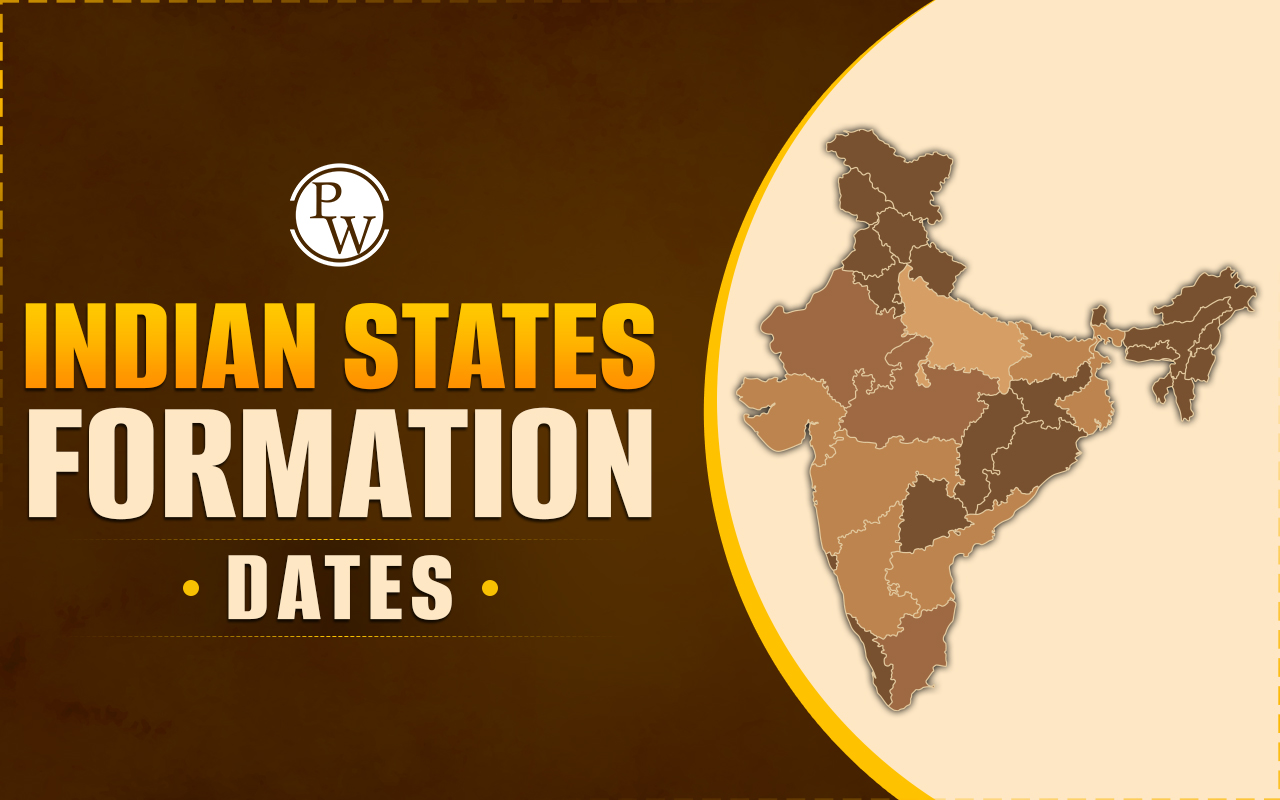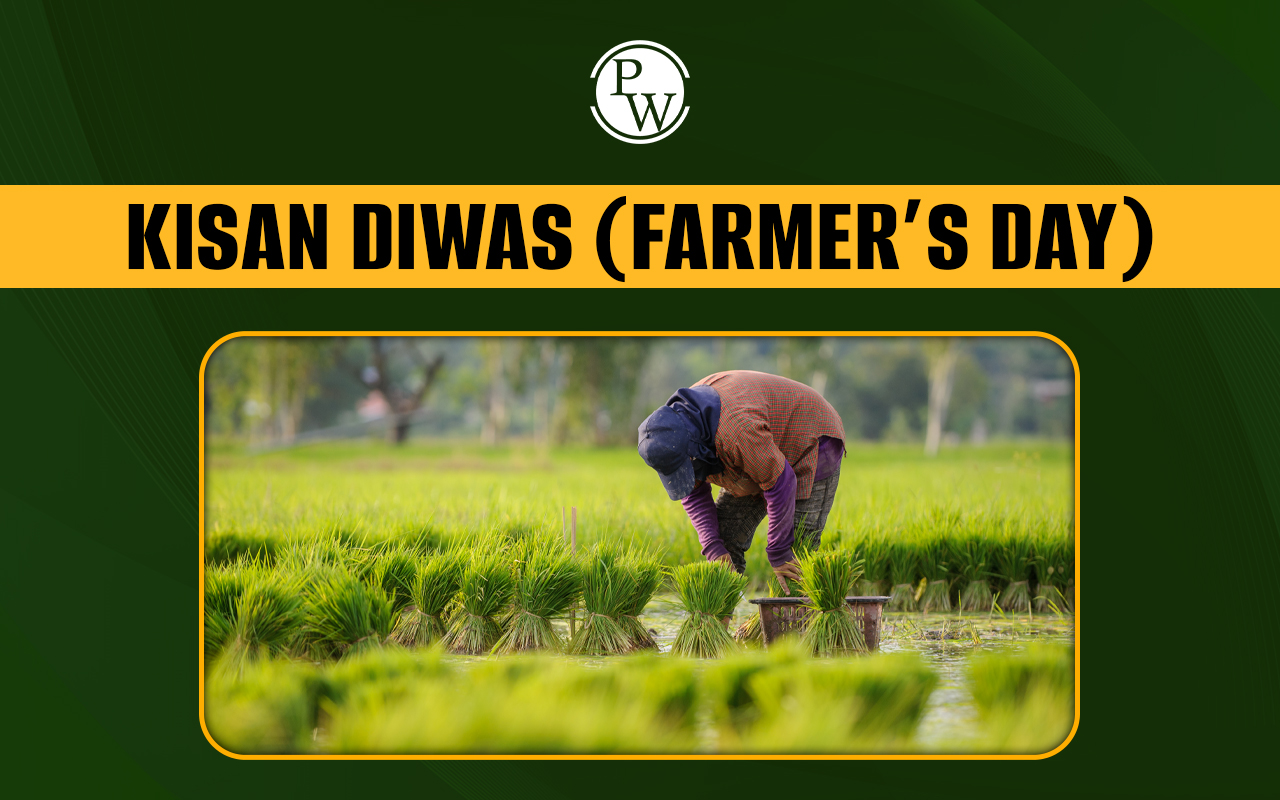

National Cooperative Policy 2025 is a new framework to transform, modernize, and professionally manage the cooperative sector over the next two decades (2025-2045). It replaces the National Cooperative Policy 2002 to address current challenges and opportunities brought about by globalization and modern technology. Read on to learn more about the National Cooperative Policy 2025 for the upcoming exam.
National Cooperative Policy 2025
The National Cooperative Policy 2025 is a 20-year roadmap for reforming India's cooperative sector. It aims to make cooperatives more competitive, inclusive, and digitally enabled. The policy focuses on creating a legal and operational environment where cooperatives can thrive as economic enterprises and democratic institutions.
National Cooperative Policy 2025 seeks to establish at least 2 lakh new multi-purpose Primary Agricultural Credit Societies (PACS), dairy, and fisheries cooperatives across every village and panchayat by 2026. Here is an overview of the policy:
| National Cooperative Policy 2025 Overview | |
| Duration | 2025 to 2045 (20-year roadmap) |
| Aim | Revive, modernize, and professionalize the cooperative sector to contribute to "Viksit Bharat 2047." |
| Vision Slogan | "Sahakar se Samriddhi" (Prosperity through Cooperation) |
| Launch Date | July 24, 2025 |
| Policy Development | Drafted by a 48-member national committee chaired by former Union Minister Shri Suresh Prabhu |
| Main Goals |
|
| Target Beneficiaries | Farmers, rural communities, small entrepreneurs, women, youth, cooperative sector as a whole |
| Comparison with Old Policy (2002) | The new policy is more action-oriented with clear targets and timelines, focusing on modern challenges and grassroots plans. |
National Cooperative Policy 2025 Launch Date
The National Cooperative Policy 2025 launch date is 24th July 2025. It will be announced at an event organized at Atal Akshay Urja Bhawan, New Delhi, by the Union Home Minister and Minister of Co-operation, Shri Amit Shah. The policy was drafted by a 48-member national committee headed by former Union Minister Suresh Prabhu, who incorporated extensive stakeholder consultations (648 suggestions) through meetings and regional workshops.
National Cooperative Policy 2025 Key Features
The National Cooperative Policy 2025 was launched on July 24, 2025, by Union Home and Cooperation Minister Amit Shah in New Delhi. This new policy replaces the old 2002 framework to modernize and strengthen India's cooperative sector. It aims to boost rural development, create jobs, and promote inclusive growth through cooperatives in farming, dairy, fisheries, and banking. The policy focuses on digital adoption, transparency, and professional management to make cooperatives more effective and future ready. Key features of the policy include:
-
Establishing at least one cooperative society in every village
-
Creating 2 lakh new Primary Agricultural Credit Societies (PACS) by 2026
-
Promoting digital tools and management practices in cooperatives
-
Supporting women, youth, tribals, and marginalized groups
-
Strengthening governance and financial transparency
-
Encouraging states to develop local cooperative policies by 2026
National Cooperative Policy 2025 Objective
Here are the key objectives of the National Cooperative Policy 2025:
-
Enhancing governance within cooperative institutions and promoting digital systems to improve transparency and operational efficiency.
-
Increasing rural earnings and improving market connectivity for farmers and village-based communities.
-
Empowering small-scale business owners, women, and young people by improving access to credit and sustainable livelihoods.
-
Integrating the cooperative sector’s expansion with the national vision of building a "Viksit Bharat 2047."
Cooperative Movement in India
The cooperative movement in India started in the early 20th century as a response to rural debt and farmer exploitation by moneylenders. The Cooperative Credit Societies Act, 1904, was the first legal step. Here is an overview of the evolution of cooperative movement in India:
| Period / Era | Key Developments |
| Pre 1900s | Informal cooperation existed through community practices like chit funds and mutual loan associations |
| 1904 | Cooperative Credit Societies Act 1904 enacted after the Indian Famine Commission recommendations, forming the first credit societies. |
| 1912 | Cooperative Societies Act 1912 expanded to non-credit cooperatives. Provincial laws post Montague-Chelmsford reforms (1919) |
| 1920s - 1940s | Formation of National Cooperative Union of India (1929). Cooperative planning committees; strengthening education and training |
| Post-Independence | Cooperatives integrated into Five-Year Plans. Multi-State Cooperative Societies Act (1942, revised 1984). NCDC was established in 1963. |
| 1950s-1970s | 1st-4th Five-Year Plans emphasized cooperative expansion and integration with Panchayati Raj. Establishment of dairy boards. |
| 2002 | National Cooperative Policy 2002 to strengthen and modernize cooperatives |
| 2025 | National Cooperative Policy 2025 to professionalize, digitize cooperatives; focus on 2 lakh new PACS and rural inclusion. |
Types of Cooperative Societies in India
Here are the major types of cooperative societies in India that will benefit from the new National Cooperative Policy 2025:
| Type of Cooperative | Function | Example |
| Credit Cooperatives | Provide short-term and long-term loans to members. | Primary Agricultural Credit Societies (PACS) |
| Consumer Cooperatives | Distribute essential goods to members at fair prices. | Apna Bazar, Super Bazaar |
| Producer Cooperatives | Help producers sell their goods collectively and get fair prices. | Silk Weavers Cooperatives |
| Marketing Cooperatives | Assist farmers in selling their produce in the market. | NAFED |
| Housing Cooperatives | Provide affordable housing to members. | Urban Cooperative Housing Societies |
| Dairy Cooperatives | Manage milk collection, processing, and distribution. | AMUL |
| Fisheries Cooperatives | Assist fishermen in credit, equipment, and marketing. | Matsyafed |
Each of these cooperative societies contributes to inclusive development by providing social and economic benefits to its members.
To sum up, National Cooperative Policy 2025 is a transformative initiative that aims to make India’s cooperative sector modern, transparent, and people-centric. It is an important topic for UPSC as it touches upon governance, rural development, and inclusive growth.
Look no further, explore Physics Wallah’s UPSC courses to prepare thoroughly on such key topics and stay ahead in your preparation!
National Cooperative Policy 2025 FAQs
What is the National Cooperative Policy 2025?
When will the National Cooperative Policy 2025 be launched?
What is the objective of the National Cooperative Policy 2025?
Why is the cooperative movement important for India?
How many types of cooperative societies are there in India?













